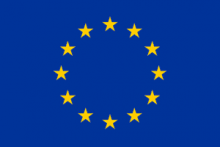15 July 2020
Blog: Future energy systems: Prosumer technology beyond institutional niches
This blog represents the insights from the 3rd international workshop in the PROSEU project, hosted by ClienthEarth, IOEW, UNIZAG FSB, CE Delft and DRIFT. It should be read as a social interpretation on technological and regulatory challenges.
By Fabi van Berkel, DRIFT
With Prosumer activities increasing, it is becoming more apparent that local renewable energy production can be a serious model for our future energy supply. PROSEU research shows that renewable prosumer technology could not only support the decarbonisation of the energy sector, but also has the potential of becoming the backbone of electricity production in the European Energy Union, with 89% being generated by households and energy communities in 2050. An impressive figure and prospect of the future, but with many underlying scenario’s and conditions to uphold. Climate conditions, the energy, heating and cooling demand, financial investments, regulatory frameworks and local enthusiasm are just a few factors that will determine to what extent Prosumerism scenario’s will become reality. Next to that, the increase of self-sufficient energy production in individual households or energy communities could or will have significant implications for existing energy markets and energy infrastructure in the EU.
What configurations does the energy system need to have in order to enable and integrate local renewable energy production? Will energy communities be connected to the grid or fully self-sufficient? Will there be heavy reliance on storage or sharing amongst households in energy communities? Which actors will play an important role in a prosumer-dominant energy supply? In the 3rd international workshop of the PROSEU project, a group of 30 engineers, lawyers, social scientists, policy makers and practitioners got together to discuss these questions and;
- reflect on the research findings from the PROSEU team on the potential of prosumer technology
- identify what regulatory challenges need to be overcome to support prosumers and energy communities
- explore what the future of a decentralized and digitized energy system looks like
Prosumer technology could be the future
In the study conducted by members of the PROSEU-team the potential of renewable technologies was extensively explored and renewable energy scenarios were developed for the individual/household/city, national and EU level. Different conditions were taken into consideration to determine the suitability of the technology related to climate conditions and energy demands in different geographical settings. Factors such as the amount of wind power density or solar irradiation, availability of bare land to use for energy generation, degree of urbanization, heating and cooling demand and type of buildings received specific attention in the study. The number of prosumers that form the community and their geographical distribution was also discussed. Technologies that were explored for heating and cooling covered heat pumps, biomass boilers, CHP, solar thermal and district heating. In terms of electricity generation, solar PV on rooftops, Solar PV on ground (local), local windturbines and small hydropower was discussed. Finally, for storage, discussions went into ideas on batteries, Aquifer Thermal Energy Storage and electric vehicles for energy storage.
Valuable insights were uncovered for individual cases on power load, consumption patterns, battery use and supply, but the main conclusion that could be drawn for the individual/household level was that heat pumps and solar thermal appear to be the preferred technologies for heat production, and solar energy (PV) for electricity production – all of which are favorable outcomes from an economic and environmental perspective. For the EU level, main results were that prosumer technologies can contribute to the energy transition in all member states, but large differences in the share of electricity that can be produced are seen throughout the EU. Collective wind power, solar PV on roofs and collective solar PV on the ground have most potential for electricity generation and heat pumps have the most potential as prosumer technology for heating and cooling. Alongside the increased use of electric vehicles, electricity demand may double by 2050 (the maximum renewable scenario).
Prosumer futures: Directions, tensions and developments
The mainstreaming of prosumerism and its integration with the energy system is not only related to the potential of its technology for electricity generation or heating and cooling. The possibility of local energy production/decentralisation of the energy system will be determined by the reachable levels of self-sufficiency (autarky), capacity and development of local grids or central grid connections, (community) storage and the digitalization of the energy system for smart measuring and data collection of consumption patterns. Combined, these abilities will enable local sharing and selling (on the energy market).
A backcasting session guided the discussion on possible prosumer futures and the above enabling/constraining conditions, exploring development paths of and between full system interconnection or energy islands. The results were three roadmaps: ‘A menu of Prosumer options’ (link), Prosumerism on Demand (link) and ‘Smart Prosumerism’ (link), but some key conditions could be identified in all the futures:
- There is need for change in electricity market regulations in order to welcome local players (cooperatives) and make it possible for them to compete with energy companies.
- There is a need for grid flexibility. A shift in grid ownership or operation responsibility is considered. Roles of the energy regulators and providers could change or more collaboration with the community needs to be sought.
- (Local) governments have an important role in educating citizens and supporting prosumer activity.
- The developments in digitalization, storage and increase of electric vehicle fleet are key determinants for the direction of Prosumerism.
What regulatory challenges lie ahead?
Focusing specifically on the regulatory challenges, insights were shared on the developments in the EU context. With the new EU legislation on ‘the clean energy package’ citizens will gain the right to generate, self-consume, store and sell renewable energy and to participate in energy communities. What this means is that after transposition in all nation states, no sand boxes or exemptions are needed in a local context to initiate local energy production. Not only will energy communities be recognized by law, it should become easier to gain access to energy markets or to commercialize energy services, like operation management or charging services. The attempt is to create rules that make the level playing field in energy markets, but transposition by national governments will determine its outcome.
An interesting learning was that for Prosumerism to increase, a new regulatory market design for energy sharing is needed. The main issue in this relates to the balance responsibility that actors on the market have. Although there is an exception under a certain kWh and balancing energy is different on a local level, energy sharing could thus impact the supply and demand on the market. For this to happen new models for sharing in certain energy cells has to be developed, to make delivery to the grid by local actors available, commercialize activities, forecast supply and demand and keep the energy system stable. Xavier Hansen provided us with insight in three models (see presentation)
Main questions and points of attention
An insightful day passed, valuable knowledge was exchanged, perspective was provided, and new questions and elements of risk presented themselves. One of the highlights was to see just how much is possible when it comes to local energy production and sharing. The presentation by Florijn de Graaf (Spectal, NL) provided two examples of local energy communities developed under exemption that made the abstract discussions tangible and prosumer future visible.
Still, there are many issues that need to be addressed for local energy production to be expanded further. For example, important developments impacting the scenarios of smart prosumerism are breakthroughs in data protection and privacy regulation. Although not all feared the intrusion of data management systems, involvement of big tech companies, like Google and Amazon should be handled with careful consideration. It was argued that a proper regulatory framework therefore should precede the large rollout of smart metering installations.
Next to that, a related challenge identified had to do with the wholesale market and the dominant role of operators and energy service companies: how to make sure that to regulate power sufficiently while still protecting consumer interest and leaving room for innovative approaches? A big question that requires innovation in regulatory frameworks, while ensuring transparency and lower entry levels for new energy actors or service oriented players, who can for example take over the management of power flows for decentralized communities.
The final important matters of discussion were the significance of the level of decentralisation, economies of scale and complementarity between urban and rural areas affecting grid transportation. Costs and financial aspects were seen as a bit of an underexposed issue, although Andreas Jahn (RAP, DE) argued that it remains important to take the system perspective into account, besides pursuing democratic principles (market/systems logic vs. community logic, see PIA#1). In the end fair energy prices are desired for all EU citizens, and with diminishing energy customers asset costs could increase for energy providers, which could leave citizens that are not (yet) participating as a prosumer with high expenses. Local connections to a central grid therewith became the most likely situation for the future, with accessible, open and easy use of technologies for everyone. This also makes a gradually phased system change possible, for not all can be done in once.
Surprisingly (or not) from a social perspective was that reduction of energy use was not part of the discussion. Although it was agreed upon that energy efficiency is important, ‘there is not really legal ground for that’. Nevertheless, behavioral change was part of the discussion as participants did see a future ahead in which time of energy use becomes a more relevant factor in business models and people will take into account weather conditions for their laundry use, as we now have incentives to do this at night, when energy is cheaper.
Find all materials from the session here.
















